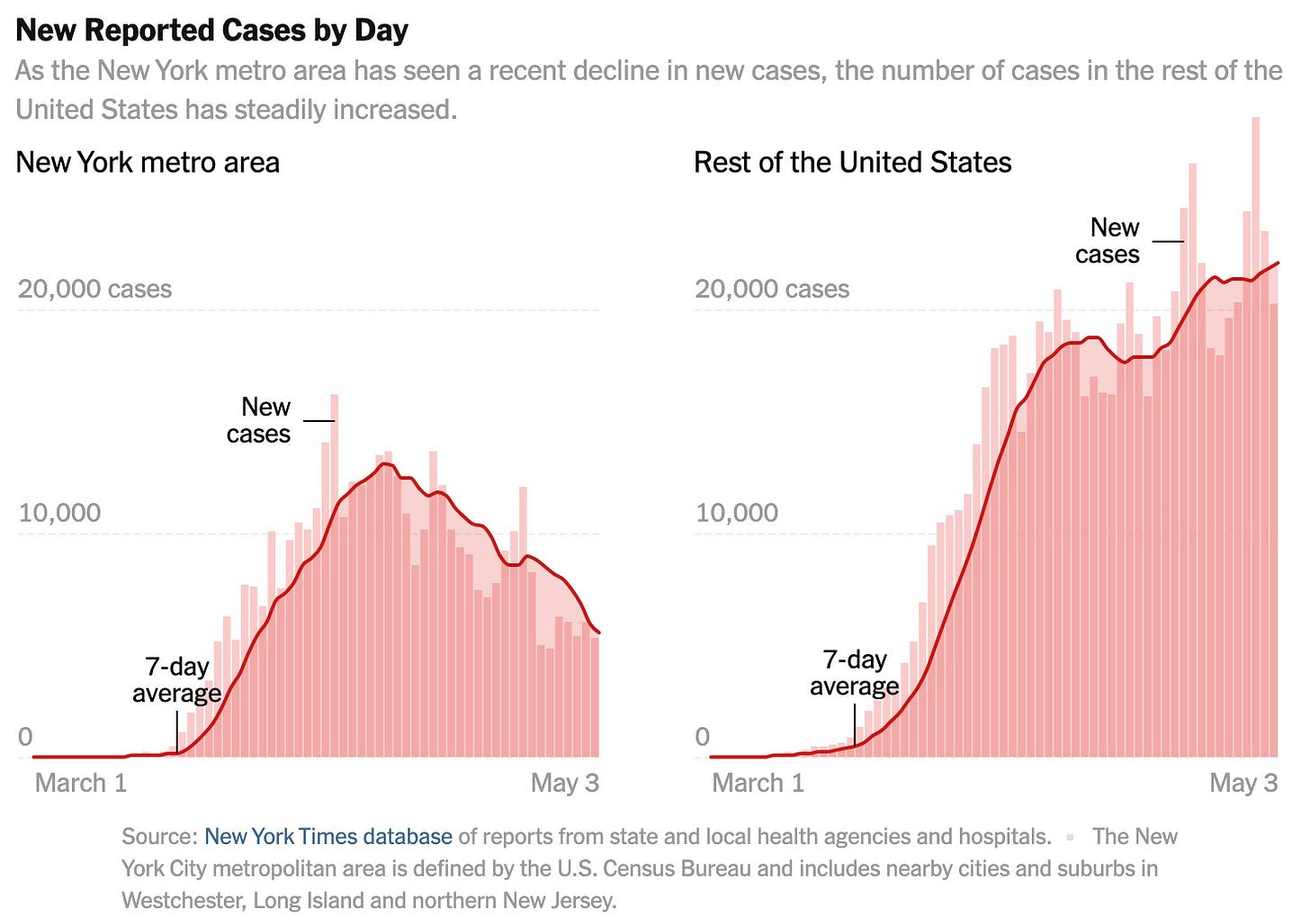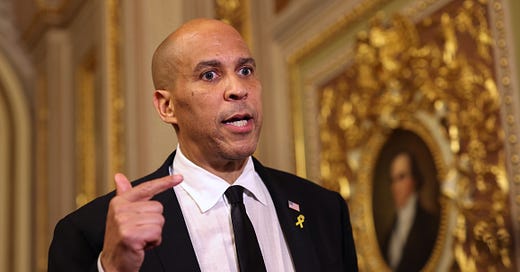
How to Pick the Lockdown's Low-Hanging Fruit
Stop arguing about barber shops and nail salons and start thinking about mass transit and schools.

1. Lockdowns
Sometimes we get into manias that prevent us from seeing things clearly.
My favorite example of this is electric vehicles.
If you're looking at environmental impacts, what matters isn't the fuel consumption of the vehicle a person is driving right now, today. What matters is the difference in fuel consumption between what you were driving yesterday and what you're driving now.
Which is to say that the low-hanging fruit isn't in moving a driver from a Honda Civic to a hybrid or EV equivalent, where maybe you can cut total emissions by 25 percent. It's moving a driver from a truck-based SUV platform to a car-based SUV, where you can easily cut emissions by 50 percent.
In other words: You concentrate on banking the easy, big gains first. And only later do you worry about squeezing the gains out at the margins.
As we start to work through how to relax mitigation measures with the coronavirus, we ought to be thinking in exactly those terms.
The whole idea of mitigation is to cut the total number of daily contacts the average person has with other people.
And this presents the exact same situation as the electric car example.
Sure, we could try to squeeze out every last contact by closing hiking trails and public parks. But the smart play is to concentrate on the areas where you can cut the largest percentages of daily contacts. And then work from there.
What does that look like? Start with the two biggies:
Public transit
Concerts, sporting events, conventions, museums, and other mass gatherings
If you reduce people's need for mass transit by letting anyone who can work from home do so, that's going to be a big percentage of contacts we cut out right from the start.
Ditto the luxury mass gatherings. I don't know how many contacts the average person makes by attending an MLB game, but I'm going to guess it's a lot.
What I'm getting at is this: When we talk about opening barber shops and nail salons and hiking trails we're talking about a small number of contacts in a person's day. And we can mitigate the risk of spread in many of those situations through mask usage.
Our bigger challenge is figuring out what to do with large-contact situations. And not just baseball games, but airports, indoor shopping malls, and—the big one—schools.
I expect the next flashpoint in the coronavirus culture war to come in the beginning of July as people start grappling with what to do about opening schools in August and September.
We should probably start working through how to manage the big-ticket items that are just 16 weeks away instead of fighting pitched battles over the small stuff that's right in front of us.
2. Not Just New York
My buddies at the New Atlantis have put together another fantastic data set, this one visualizing how COVID-19 has been affecting individual states in terms of death numbers.
Go look at the graphics here. They're pretty striking.
For each state, we have compared Covid-19 deaths over a rolling weekly period to what we would usually expect at the same time of year from other causes of death. These causes include car crashes, flu and pneumonia, Alzheimer’s disease, and heart disease (the normal leading cause). The point of comparison is the same week in 2018, the most recent year for which complete weekly figures are available from the CDC and the National Highway Traffic Safety Administration. The year 2018 also saw the deadliest flu season on recent record.The color of each state shows the typical cause of death that had been surpassed by Covid-19 in that week. For example, in Texas on the week ending April 29, 2020, coronavirus deaths were greater than the number of Alzheimer’s deaths in the same week in 2018.

This is the micro version of a macro trend which should worry you quite a lot: That the new case numbers are dropping in the New York Metro area, but rising in the rest of the country.
Here's another way to visualize that, from the NYT:

Wednesday was the fifth-highest reported one-day death total so far.
Again: I really hope you'll consider subscribing to the New Atlantis to support the important work they're doing. It's the best $24 you'll spend.
3. More Caitlin Flanagan
Another fantastic piece from her, giving the commencement speech this year's graduating seniors will never hear:
But you won’t get to have this very special event, four years in the making. Why not?
Because history found you.
An event that will change the way we live was sweeping around the globe, and it found you. As your long, strange spring break was extended week after week, the truth began to settle in: You were never going back to college. Not as a student, anyway. That part of your life had ended, and you never got to say goodbye to it.
History also found my father when he was in college, although he was a freshman, not a senior. He was a new student at Amherst College, and he thought it was paradise. He was finally free of the repressive Catholicism he’d grown up with, he was surrounded by free thinkers, and he was at last in a place where his great talent—writing—was valued above all others.
This was in the old days, when you sent your laundry home to your mother, wore a jacket and tie to class, attended compulsory Protestant chapel, and did anything else the dean of students told you to do.
This was a long, long time ago, the freshman year of Thomas Flanagan. Did I mention it was 1941?
He thought he was finally free, but history found him.
Those students knew that the world was rumbling around them, but they were in a New England college studying the poets and philosophers, and it was easy to imagine that the world was far away.
News of the Japanese bombing of Pearl Harbor arrived on a Sunday afternoon in December. The next morning—Monday, December 8—virtually every man in that college walked into town, chose a branch of the armed services, and enlisted.
Soon enough, my teenage father was in Officer Candidate School, and then he was on a destroyer in the Pacific. There were no poets or philosophers on those ships, or maybe there were only poets and philosophers. But certainly there was history, day after day of it. Read the whole thing.










